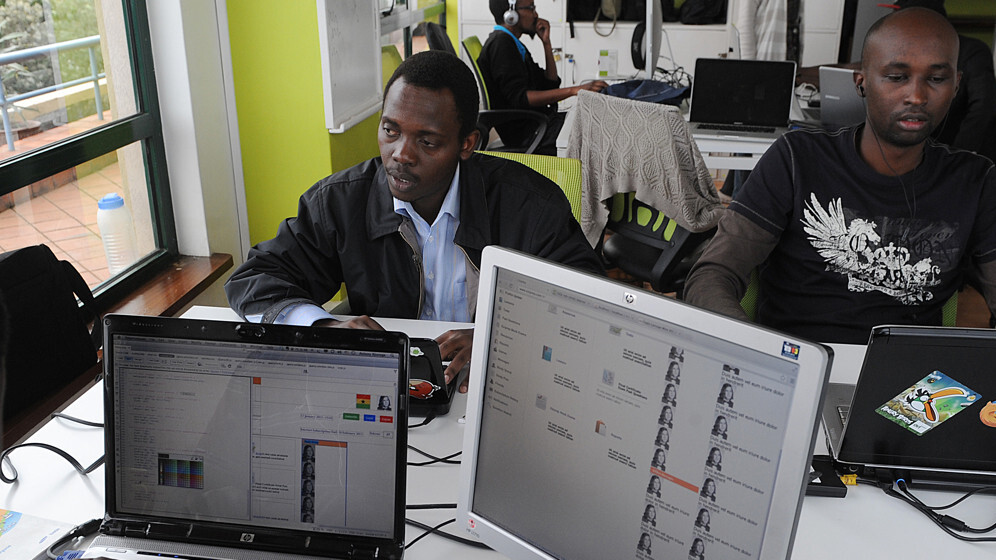
Kenya is at the forefront of the open data movement in Africa thanks to initiatives such as crowdsourcing software Ushahidi and government tracker Uchaguzi.
At the recent The Next Web Conference Europe held in Amsterdam, Marina Gorbis, Executive Director of the Palo Alto based Institute For The Future (IFTF) made a presentation on the “Nature Of The Future – Socialstructed World.”
Gorbis defines ‘socialstructing’ as “creating value by aggregating micro contributions by large networks using social tools and technologies”. In her talk and presentation she touched on topics around socialstructed work, socialstructed learning and socialstructed governance.
One of the key points raised by Gorbis in the presentation was the shifting of governance away from politicians and governments towards the citizens thanks to open data and social technology solutions.
Kenya’s citizens with the help of technology tools such as Uchaguzi and Ushahidi have proved that with the buy-in of citizens, technology can be used to a certain extent in improving the transparency and accountability of governance — in this case elections — and putting that power in the hands of citizens.
But will such initiatives work in countries that have repressive regimes?
Africa has many tales of disputed election results, violence breaking out during elections and some regimes abusing their powers in the usage of state funds etc., thus it is a valid concern, despite Kenya’s successes to an extent, to question whether before considering open data, a country perhaps needs a government open to such solutions?
Open government before open data?
I caught up with Gorbis and her colleague Tessa Finlev (Research Manager, Ten-Year Forecast) to hear their views on and expand more on this and how they see open data shaping governance in Africa.
Gorbis explained that socialstructed governance means using open data tools to somehow shift governance from governments to citizens, i.e. “governance beyond government”. This, according to Gorbis, includes citizens actively participating in provisioning of services that are traditionally provided only by the government.
She concurred though, that repressive governments (in Africa and the rest of the world) can play a negative role and have the potential of sabotaging or manipulating the use of any such open data tools to further pursue their agendas. Although, with the rising power being put in the citizens hands through social, mobile and internet technologies this will slowly change as the years go on.
Finlev agrees that as years go by things will change as “Future Forces” are inevitable, and change in the way governments are elected and they govern is going to happen and will most likely be determined by citizens as more power shifts into their hands.
She further added that although in some instances using technology and open data tools is “dangerous” as part of a country’s political processes given some countries have repressive regimes, she made an example of how such tools can be used in other spheres of government citing BudgIT in Nigeria.
BudgIT came about as an idea at a hackathon held at Nigeria’s Co-Creation Hub in 2011. As explained by Finlev, it is a tool that engages Nigerian citizens and allows them to participate in governance by making it easier for them to make sense of the country’s national budget in a simpler way and also allowing them to provide feedback on it.
One of the examples of how BudgIT encourages civic engagement and governance was during the Occupy Nigeria protests in 2012 where it analysed and concluded that the President’s food budget was 1 billion Naira ($6.2 million) per annum and yet he was calling for fuel subsidies to be cut. They sent a tweet to this extent and it went viral and fuelled a part of the riots that took place with citizens, amongst other things, asking the President to consider cutting his food budget first before cutting fuel subsidies.
Currently BudgIT has extended its services to include helping some of Nigeria’s states to make their budgets transparent and easy to understand by the citizens.
In response to my question to Finlev asking whether then the solution to some of Africa’s governance problems can be solved by technology and open data, she was quick to point out that people still need food, roads, schools, healthcare, etc. thus as much as technology and specifically mobile technology are driving the move towards a socialstructed world and governance, citizens still have “real” needs.
Image: Ushahidi members. Credit: AFP/Getty Images
Get the TNW newsletter
Get the most important tech news in your inbox each week.





